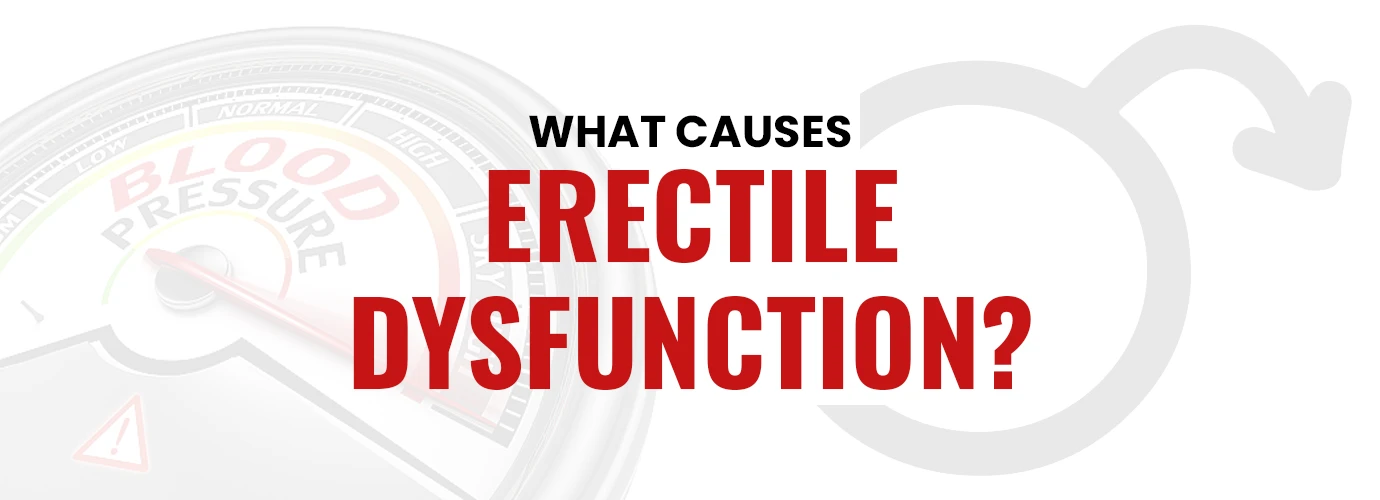Men who experience difficulty achieving or maintaining an erection that is hard enough for intercourse are said to have erectile dysfunction (ED). It’s more common than many think—especially in men over 40. But ED isn’t just a normal part of aging. It can indicate other health issues. Let’s look at the main causes of erectile dysfunction and how they affect your body.
What Is Erectile Dysfunction?
Erectile dysfunction means a man can’t get or keep an erection long enough to have satisfying sex. It doesn’t mean he has no interest in sex—it just means the body isn’t responding the way it should.
Common Causes of Erectile Dysfunction
There are two main types of causes: physical (medical) and emotional (psychological). Sometimes, both play a role.
Physical Causes of ED
Many health problems can affect the blood flow, nerves, or hormones needed for an erection. Common physical causes include:
Psychological Causes of ED
The brain plays a big part in getting an erection. Emotional or mental issues can interfere with this process:
ED Can Be a Warning Sign
Sometimes erectile dysfunction is an early warning sign of serious health conditions like heart disease or diabetes. If you're having regular problems with erections, it's important to talk to a doctor and get checked.
Who Is Most at Risk?
You’re more likely to have ED if you:
- Have heart disease or diabetes
- Have high stress or depression
- Take medications that affect sexual function
Can Erectile Dysfunction Be Treated?
Yes! The cause of ED decides the treatment. Options include:
- Lifestyle changes: Exercise, quitting smoking, healthy diet
- Oral medications: Such as Sildenafil (Viagra, Fildena) or Tadalafil-based options used for improving blood flow; some people researching daily-dose solutions may come across information like buy 5mg Vidalista while learning about treatment choices
- Counseling or therapy: For stress or relationship issues
- Medical treatments: Like hormone therapy or devices
FAQs About Erectile Dysfunction Causes
Can stress cause ED?
Yes. Stress is one of the top psychological causes of erectile dysfunction.
Does age cause ED?
Getting older increases the risk, but age alone doesn’t cause ED.
Can diabetes lead to ED?
Yes. Diabetes damages blood vessels and nerves that are important for erections.
Is ED always a physical problem?
No. It can be caused by emotional issues too, like anxiety or depression.
Final Thoughts
Erectile dysfunction is a common but treatable problem. It can be caused by physical health problems, emotional stress, or both. The good news is that there are many ways to manage or fix ED once you know the cause. If you’re facing these issues, don’t ignore them—talk to a doctor and take control of your health.
